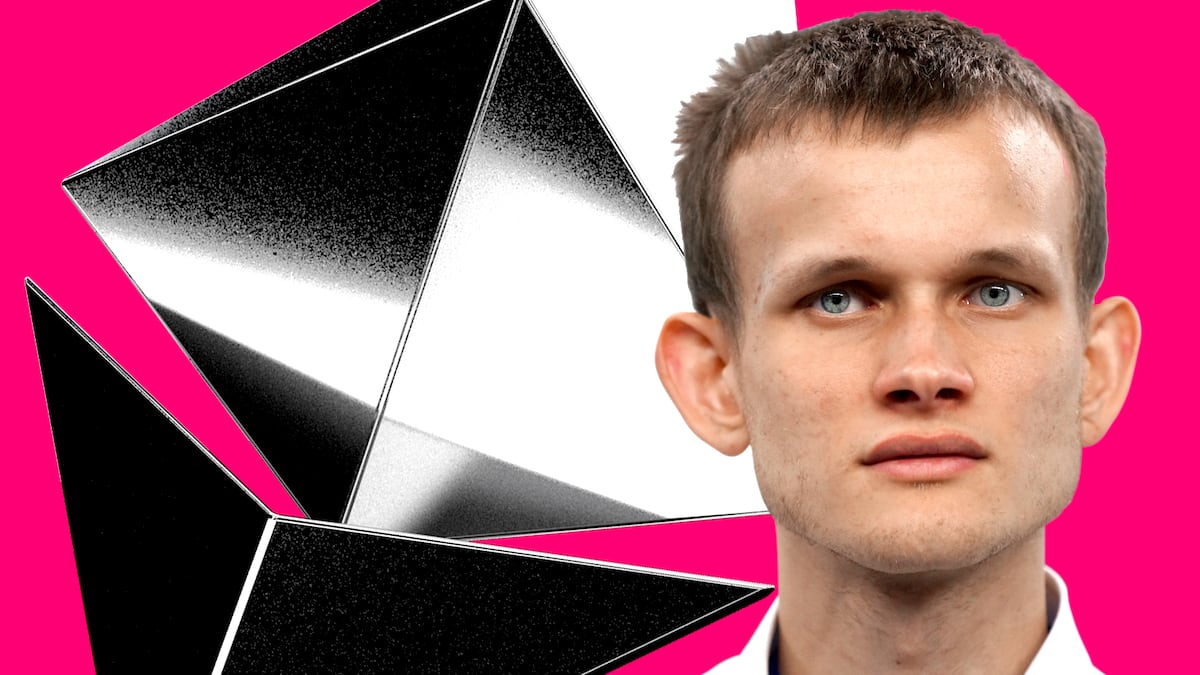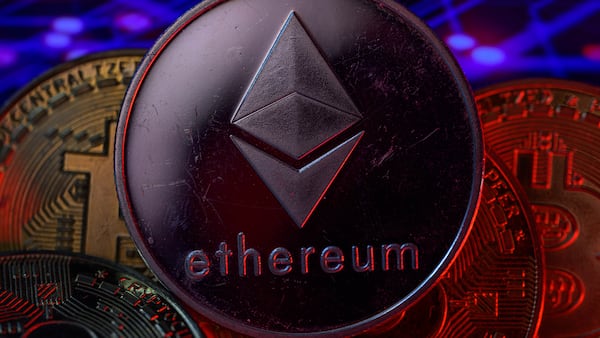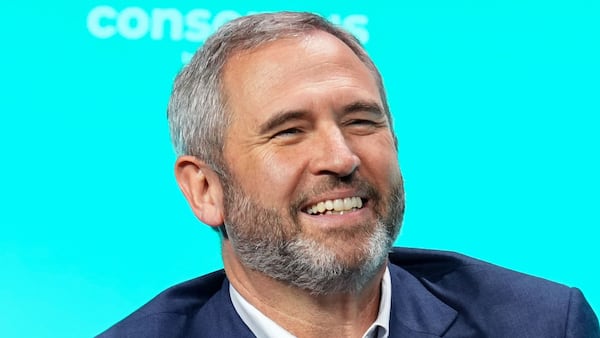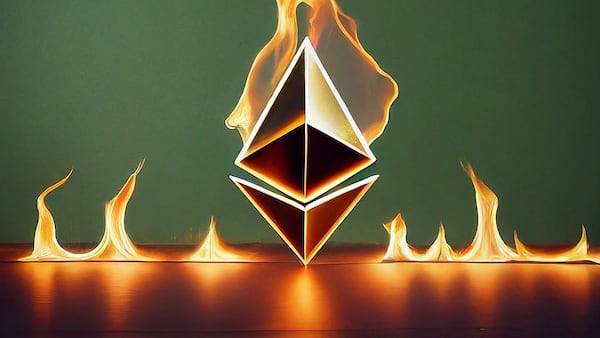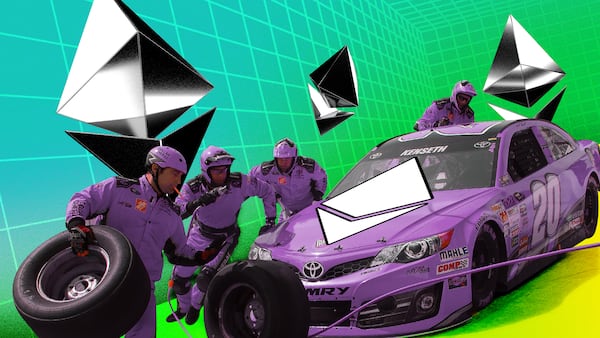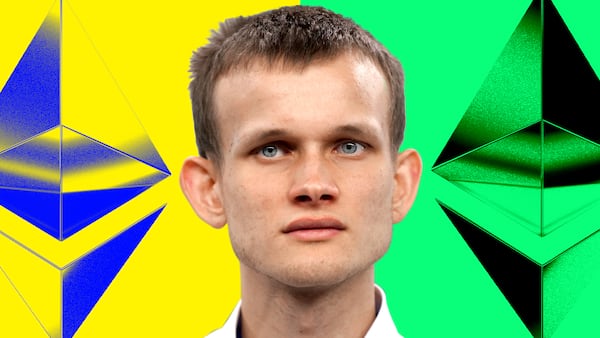- A new documentary, "Vitalik: An Ethereum Story" was released Tuesday.
- The directors had "unprecedented access" to Ethereum co-founder Vitalik Buterin.
- But the film feels dated, and mainstream viewers will learn little about the technology itself.
Aleks Gilbert is a DeFi correspondent at DL News. Opinions expressed are his own.
Early in the documentary “Vitalik: An Ethereum Story,” journalist and professor Nathan Schneider says Ethereum co-founder Vitalik Buterin “almost too perfectly” fits the mythology of a tech founder.
“This kind of worship of youth, this obsession with a kind of innocence and yet power,” Schneider says.
It’s ironic, then, that directors Zach Ingrasci and Chris Temple fell into that very trap in the documentary, which was released Tuesday on Apple TV, Prime Video and Vimeo on Demand.
The film offers a reverential portrait of the itinerant software developer who created Ethereum, the world’s second-most valuable blockchain.
It also offers an abridged history of Ethereum that takes viewers just past The Merge, the monumental 2022 upgrade that slashed the blockchain’s energy use by some 99%.
This ground is well-trod, and crypto natives won’t learn much they didn’t already know about Ethereum or its founder.
To be fair, this movie wasn’t for crypto natives.
The company behind the film said it wanted to tell a story about this supposedly revolutionary technology that would resonate with a mainstream audience.
The problem is, by attempting to squeeze Buterin’s life and eight years of Ethereum history in less than 90 minutes, the documentary fails to explain why, exactly, this blockchain could change the world, beyond tired platitudes about freeing ourselves from the grip of big banks and Big Tech.
Nor does it succeed in dramatising the controversies that roiled Ethereum in its first eight years, opting for a series of candid vignettes rather than a narrative arc.
The marketing for “Vitalik: An Ethereum Story” boasts the filmmakers had “unprecedented access” to Buterin.
So it feels like a missed opportunity to release in 2025 a documentary that does little to expand our understanding of Buterin or the technology he unleashed on the world.
Magic sugar
The lionisation of Buterin includes all the typical ingredients: glimpses of a gifted, if awkward, youth; a naive visionary thrust into a leadership position he never wanted; a reluctant thought leader who decides to wield his influence in service of a greater cause.
We see Buterin as a precocious seven-year-old who authored an “Encyclopedia of Bunnies,” a treatise on a fictional universe in which rabbits travel faster than light using a substance called “magic sugar.” (“Magic sugar is sugar that contains 70% magic, 15% rocks, 9% metal, 4% paper, 1.7% wood, 0.25% leaves, 0.05% water,” the young Buterin wrote in his second language just a year after leaving Russia, his home country.)
We see Buterin lament the hyper-financialisation unleashed by cryptocurrencies and we see him speak out against Russia’s invasion of Ukraine.
In 2022, he travels to the Kyiv Tech Summit, where he meets a group of starstruck software developers.
“May I shake your hand, please?” one of them asks. “I really admire you for taking a stance with Ukraine. Just wanna say thank you.” Applause.
It’s not that the directors shy away from unflattering moments or the dark side of crypto: they dutifully cover the debates around blockchains’ environmental footprint, the degenerate gambling they enable, their constant exploitation by North Korean hackers and other cybercriminals, and the fraud-fueled crash of 2022 that felled now-defunct titans including Terra, Celsius, and FTX.
And it does a good job covering the power struggle in Ethereum’s early days, when the idealistic Buterin clashed with co-founders who wanted to create a Google-like, for-profit entity to lead the blockchain’s development.
“They want a horizontal power structure,“ co-founder Charles Hoskinson fumes on a recorded call.
”So they basically want the fucking janitor to be at the same level as the person at the top. It’s just batshit crazy out here. You know, ‘We’re all equal, we’re all going to be this new age open-source project.’ It’s like I’ve walked into a goddamn hippie commune." (Hoskinson went on to found his own blockchain, Cardano.)
But in attempting to cover so many topics, few get the treatment they deserve. The same goes for the film’s attempt to highlight the blockchain’s revolutionary potential.
Take, for example, Ukraine DAO, which is featured prominently in the film. The organisation used Ethereum to sell non-fungible tokens to raise money for Ukraine after Russia’s invasion in 2022, an effort Buterin supported.
Ukraine DAO raised about $7 million within days of releasing its NFT, according to a spate of news articles published at the time.
But it’s a poor example of Ethereum’s supposedly transformative potential. Why did those donors need to use the blockchain? There are many ways to donate to Ukraine, after all.
Too little, too late
Had the film come out in 2023, perhaps it would have been more interesting. It ends shortly after Buterin’s appearance at the 2023 Montenegro Tech Summit. Mainstream viewers might not care, but anyone with more than a passing interest in crypto will find the documentary dated.
“My biggest fear is a bull market,” Buterin says toward the end of the film.
Since then, crypto has gone on a wild ride: The US’ approval of crypto-based exchange-traded funds and the election of Donald Trump created the very bull market Buterin so feared.
Curiously, though, Ether has crashed since topping out at $4,000 in December. Critics partly blame its underperformance on Buterin’s stewardship of the Ethereum Foundation, a Switzerland-based nonprofit that has taken a relatively passive role in the blockchain’s ongoing development.
Firebrand developer Ameen Soleimani summed up the sentiment last week when he blasted the “Ethereum religion of living in fucking lala land ivory towers and valuing our utopian bullshit over dealing with and improving upon practical reality.”
Buterin, meanwhile, appears increasingly frustrated with the online vitriol. Normally agreeable to a fault, he has lashed back at people who called for the ouster of Ethereum Foundation Executive Director Aya Miyaguchi.
“No. This is not how this game works,” he said in January. “You are decreasing the chance I have any interest whatsoever in doing ‘what you want.’”
With unprecedented access to Buterin, surely the directors could have dramatied this latest crisis, his struggle as a peacenik techno-optimist in an industry that often seems to be dominated by self-described libertarians and Trump supporters.
Instead, we get a documentary that superficially covers the debates we were having about crypto two years ago. And as anyone in crypto knows, two years is basically a lifetime.
Normie viewers learn that Buterin is a brilliant software developer struggling with a leadership role he never wanted.
But what did we learn about Ethereum? That can be summed up with a revealing quote from the man himself in the film’s closing minutes.
“Let’s let the crypto anarchists and the geeks put in the effort at making this stuff work and, maybe within a couple of years, we’ll get a legit product that larger groups will care about,” Buterin says.
Here’s hoping.
Aleks Gilbert is DL News’ New York-based DeFi correspondent. You can reach him at aleks@dlnews.com.
